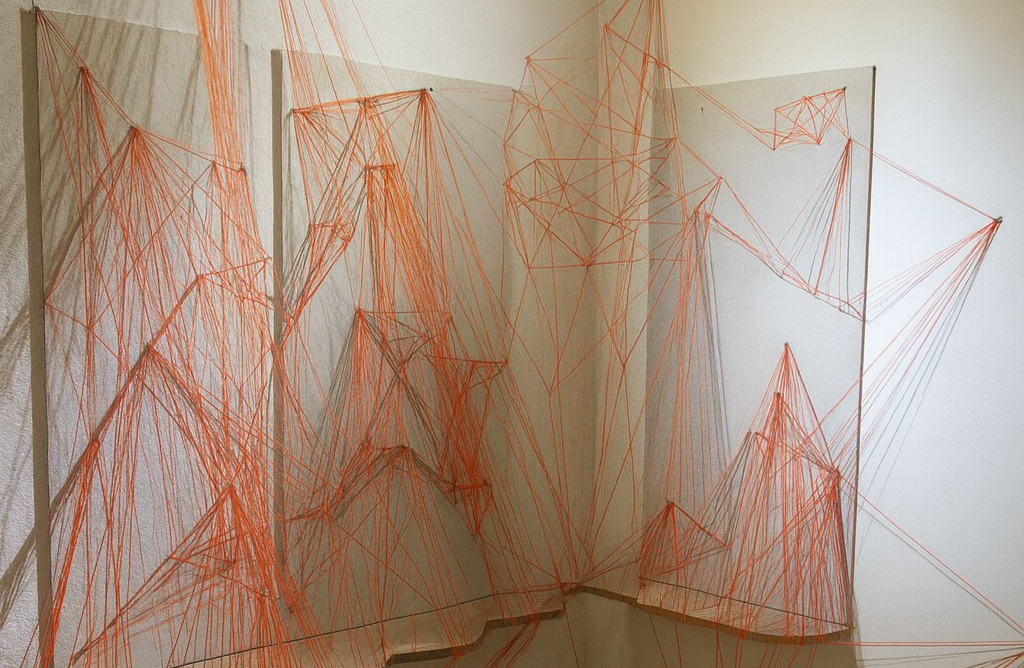Vector Fields
By Lisa Knoll
15/9/2023
Exhibition Details
14 September – 28 October 2023
Venue: Atticus Art Gallery
Address: 11a Queen Street, BA1 1HE, Bath, United Kingdom
Website: www.atticusgallery.co.uk
Email: info@atticusgallery.co.uk
Image © Atticus Gallery
Atticus Art Gallery is pleased to present Vector Fields, a solo exhibition by Ekaterina Lazareva.
Born in the Russia in 1973, Ekaterina Lazareva is an artist whose practice unfolds between painting and installation, and across multiple geographies. Having lived through the dissolution of the Soviet Union and later relocating to Cyprus and the United Kingdom, Lazareva’s work is deeply marked by displacement and transnational experience. Her art addresses the fragility of relation and the instability of belonging, staging moments where repetition and divergence, presence and absence, coexist in tension.
Her paintings are characterised by translucent layers of pigment applied over darkened grounds, creating atmospheric fields where form hovers without resolution. Within these works, Lazareva often employs the diptych format: two canvases that at first appear identical but gradually disclose their differences. These subtle divergences destabilise the logic of the mirror image and instead propose duplication as a site of transformation.
Her installation works transpose this logic into space, using thread to build ephemeral yet structurally transformative geometries. These fragile lines reshape architecture into sites of tension, compelling viewers to sense space bodily, to adjust and to reorient themselves in relation to the work. The threads, though delicate, form resilient structures that reveal the unseen infrastructures of connection and division.
In Vector Fields, Lazareva extends this exploration with a new site-specific installation. Taut red filaments stretch across the gallery corner, creating a lattice that at first suggests order and symmetry, only to dissolve into instability as the viewer moves around it. What appears repetitive fractures into subtle difference, producing a poetics of near-symmetry. The work resonates with the infinite geometries of Islamic mosaic traditions, yet instead of pointing towards transcendence, it insists on the provisional, the fragile, and the contingent.
This exhibition encapsulates Lazareva’s conviction that fragility is not weakness but a generative condition: a way of understanding perception, relation, and belonging as always in flux. Vector Fields is not simply an installation but an experience of dislocation and reorientation, where the act of seeing becomes inseparable from the act of inhabiting.

